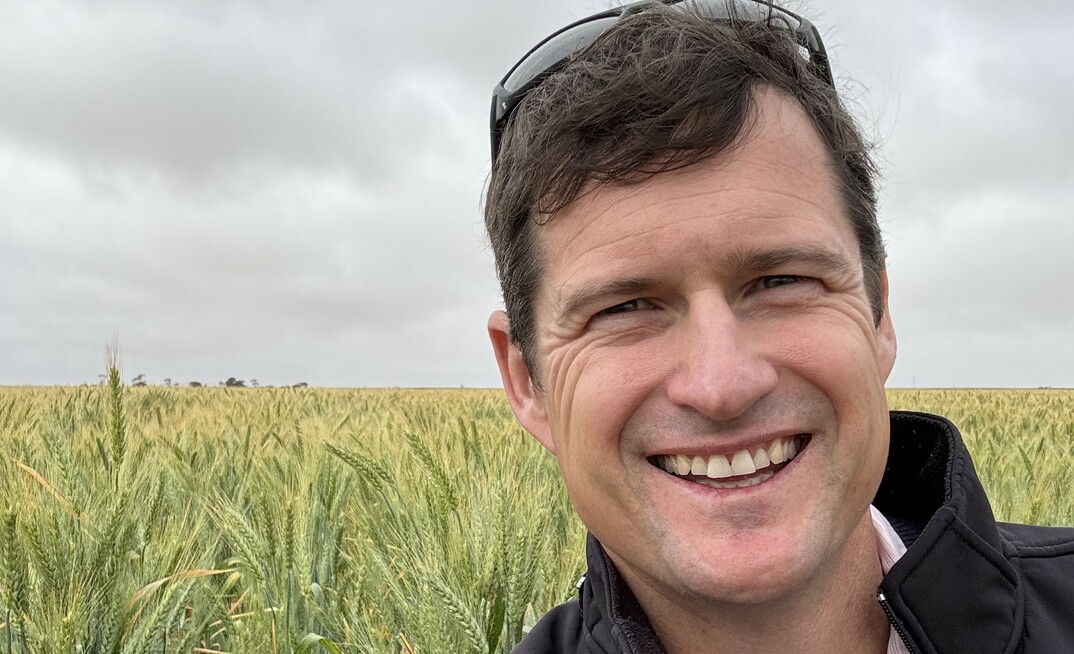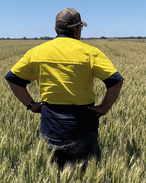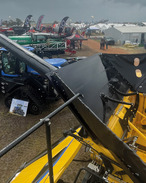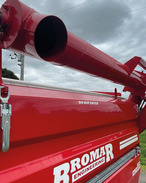NOVEL research applying gravel mulch to challenging soils in Western Australia's grainbelt has delivered surprising results for researchers, with significant improvement in wheat yields observed.
Department of Primary Industries and Regional Development (DPIRD) senior research scientist, Wayne Parker, will deliver the trial results at the Australian Agronomy Conference, which runs from 21-24 October in Albany, WA.
Parker said crop production on alkaline-sodic-saline soils in WA often fluctuated between excellent productivity in years with above-average rainfall and poor production when rainfall was below average.
"Ameliorating these soils requires improving water infiltration, reducing soil evaporation, leaching excess salts and removing compacted layers," Parker said.
YOU MIGHT ALSO LIKE
The research project, with co-investment from DPIRD and the Grains, Research and Development Corporation (GRDC), investigated the impact on grain yield using novel soil amelioration systems.
These systems included gypsum, gravel mulch applied to the soil surface and deep tillage at three sites in the shires of Mullewa (Devils Creek), Merredin (Moorine Rock) and Esperance (Grass Patch) in 2022 and 2023.
Gravel mulch is a thin layer of gravel, predominantly stones, spread across the surface of a heavy, alkaline-sodic soil, to act as a cover protecting the surface and reducing evaporation.
"The gravel mulch treatment, applied at 2-4 centimetres thick, increased the average yield by 0.53 tonnes per hectare across all sites and years, representing a mean yield increase of 54 per cent," Parker said.
"With 2023 being a very dry season, the trials indicated that inert mineral mulch can provide yield stability during drier seasons."
Parker said gravel mulch was not used in broadacre farming prior to the trial work and was expensive, with current cost estimates exceeding $2000 per hectare.
"The profitability of the gravel mulch will depend on the longevity of the treatment, with farmer observations suggesting that improvements in crop yields can persist for 10 years," he said.
Parker said the two-year study also found that gypsum applications, whether applied at a low rate, in-furrow or at a high-rate broadcast on the surface, yielded generally insignificant results.
"The only site to respond to gypsum was sodic with low electrical conductivity in the topsoil," he said.
"The impacts from deep tillage using a Paraplow to 35 cm were also insignificant, highlighting the importance of managing chemical constraints in the soil before investing in deep ripping."
Further research into inert mineral mulches, and other systems to provide significant prevention of surface evaporation, is underway via the Soil Water And Nutrition (SWAN) collaboration between DPIRD and GRDC to lift water and nutrient use efficiency in grains crops.
The Australian Society of Agronomy annual conference brings together agronomy professionals, researchers and experts from around the country. The program features more than 160 presentations from 130 professionals, researchers, and experts in the field of agronomy.
The two-day agronomy conference will be supported by a pre-event masterclass for new agronomists, and a full day of five field tours where delegates get to see first-hand how industry is putting the latest research into practice.
Two DPIRD-sponsored tours visiting Katanning and Manjimup Research Stations will provide international and interstate visitors with a chance to explore some of WA's farming region.
More conference information is available from www.agronomyconference.com.
























